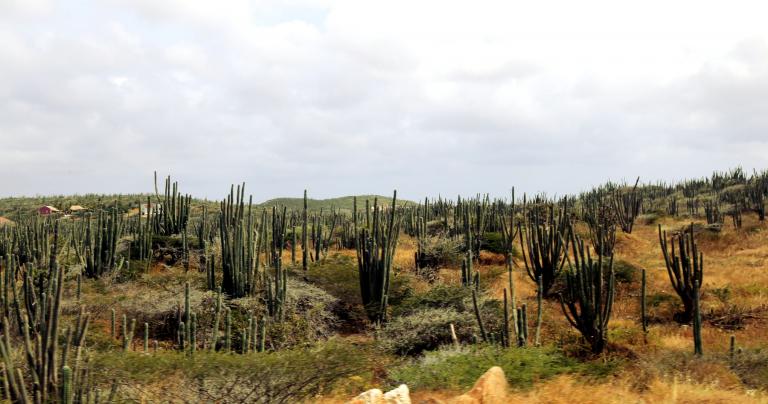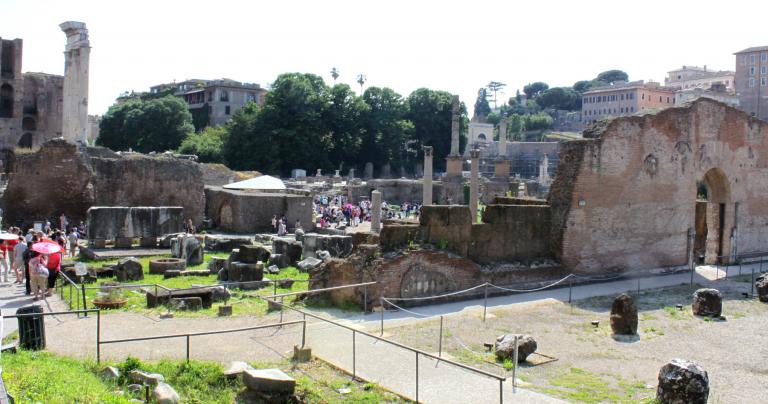The Kingdom of Egypt lasted for over 3000 years. Longer than that, if you follow the evidence outlined by Gordon White in Star.Ships (and I do). The daily rituals performed by the temple priests helped maintain Ma’at – both the principles of order and justice, and the Goddess who personifies them.
Occasionally, though, chaos would overtake order and the kingdom would divide, or a foreign power would conquer the land. And when Octavian and his Roman army invaded in 30 BCE, the Kingdom of Egypt was no more. The empire that “teetered on the edge of chaos” for three millennia toppled for good.
Like ancient Egypt, our world is also teetering on the edge of chaos. Also like ancient Egypt, some day it will topple over. Chaos cannot be prevented forever.
I don’t like chaos. I want order and predictability in my life. I don’t like taking risks. Taking risks may make things better, but it may also make things very much worse.
But what I want doesn’t matter much in the grand scheme of things. Chaos is real and it can be delayed, but it cannot be eliminated
And in the right situations, it can be a good thing.
Maintaining order requires constant vigilance
Anyone who’s ever tried to maintain a lawn (surely one of the most ridiculous fashion trends of the Western world) understands that maintaining order requires constant work. Shortfalls in rain have to be made up with irrigation. Wild plants better suited to the local environment try to take over. Some spots don’t get enough sun. And things that grow well grow into places where they aren’t wanted, like concrete cracks and flower beds.
The same is true with human systems of order. Communities, cultures, religions – they require constant maintenance or they’ll fall into disrepair. The more complicated the system is, the more maintenance it requires, and the more likely it is to succumb to chaos.
Order can turn into stagnation
Predictability and reliability are good things. But even good things can stagnate. Eat your favorite foods often enough and they become bland and boring. More relevantly, systems that are designed for one particular time and place can become fossilized and no longer support the people who rely on them.
Fundamentalist Christians and Muslims are trying to cling to an order based in centuries-old Middle Eastern culture that no longer fits our world, if it ever did. The stagnation of Christianity opened the door for the resurgence of Paganism in the 19th and 20th centuries.
Pick your system – religious, political, economic, or anything else. If it’s not mindfully maintained it can become stagnant and ineffective… and dangerous.
Chaos disrupts stagnation
“Disruption” is the current buzzword in the business world. It refers to innovations that render the current order irrelevant and forces it to either adapt or go out of business. Uber is the most commonly cited example – it disrupted a taxi industry that had grown stagnant.
Uber isn’t really chaos, though – it’s a different kind of order. Instead, think of the barbarians sacking Rome, or better yet, the forest reclaiming an abandoned building.
Things that haven’t been valued enough to be constantly maintained are easy pickings for chaos. If you don’t want a manicured lawn badly enough to work on it all the time (or pay someone to do it for you) then crabgrass and vines and clover are going to take it back to its natural state. Governments that don’t tend to the needs of their citizens can find themselves overthrown, either at the ballot box or in the streets.
Chaos can be co-opted
Human-driven chaos rarely goes for long before someone decides they can manipulate it. The American Tea Party (“Taxed Enough Already”) began as a conservative populist movement against perceived government overreach. But it wasn’t long until established politicians – who helped create the very systems the Tea Party was protesting – began co-opting and appropriating the movement for their own re-election campaigns.
Uber may have disrupted a taxi industry that had grown arrogant and deserved to be upended, but it’s turning full time jobs into part time jobs in the hopes of funneling the difference to investors. It may not be sustainable once it burns through its supply of venture capital.
When my anarchist friends advocate chaos on a large scale, I always ask “what are you going to build in place of what you tear down?” Because left to their own devices, the same people (or their children) who co-opted the current system will find a way to co-opt the new system to their own advantage. Meet the new boss, same as the old boss.
Chaos harms those dependent on the current order
For some of us, preferring order over chaos is a matter of taste. For others, though, it’s a matter of life or death.
Want to blow up civilization and have everyone go back to living off the grid? People dependent on insulin and other maintenance drugs will die. Want to do away with Social Security because you don’t like “big government”? Millions of elderly people who currently just get by will spend their final years in poverty. Want to eliminate private insurance and have everyone under a single payer program? A half million people in the health insurance industry (most of whom are not highly paid executives) will be thrown out of work.
Sometimes we’re all better off if chaos disrupts a current system, even if it means that innocent people are displaced. It’s our job to look at the unintended consequences and make sure those who are dependent on the current order have a way forward.
Chaos creates opportunities
If you take nothing else from this post, remember this: chaos creates opportunities. Order builds walls, locks gates, and posts gatekeepers. Mostly these walls keep out things we’d rather not deal with. But they also keep out those who are just looking for a chance.
Whether chaos is economic, political, cultural, or spiritual, it will tear down walls and gates. It will destroy existing centers of power and create a vacuum waiting to be filled. It will create opportunities to make money, to change laws, to influence others, and to work magic.
Opportunities are never evenly distributed – you will have to go to where the opportunity is. They are rarely handed out (except to the children of the rich, and those are not the opportunities created by chaos) – they have to be seized. They do not guarantee success – risk is involved.
Chaos-created opportunities favor the bold, the energetic, and the skilled. All that work and study you put in over the years, not knowing what it was for? This is what it was for.
Didn’t put in the work and study? Start now. Maybe you missed this chaos-driven opportunity, but there will be others. And you have no idea when they’ll be here. Maybe next week, maybe next year, maybe next decade. Be ready to seize them when they appear.
Chaos happens – deal with it
I do what I can to keep chaos at bay, particularly the kind of spiritual chaos I’ve been writing about lately. I do my best to avoid mundane chaos, and to insulate myself from its effects. But the same Egyptian tradition that teaches us to honor and cultivate Ma’at has another saying:
“The desert is always waiting and Set is never sated.”
Chaos is always there, ready to move in if we are less than vigilant… and sometimes, even if we are.
I do not know what form chaos will take in the days to come. I do know that my distaste for it is irrelevant – it’s coming anyway. Be ready.
Keep up your daily spiritual practice – this is your foundation. Pay attention to the world around you – watch out for dangers, and for opportunities. Make friends and allies, both in this world and in the Otherworld. Learn useful skills – including some magical skills. Learn to fly.
Remember that we are the children of those who survived every chaotic disruption in the history of the world. Ice ages, floods, and famines. Wars and plagues. The fall of temples and the invasions of missionaries. They survived every chaotic event known to humanity – or we wouldn’t be here. And we are.
Our ancestors survived and succeeded, in spite of – and in some cases, because of – chaos.
So can we.




















